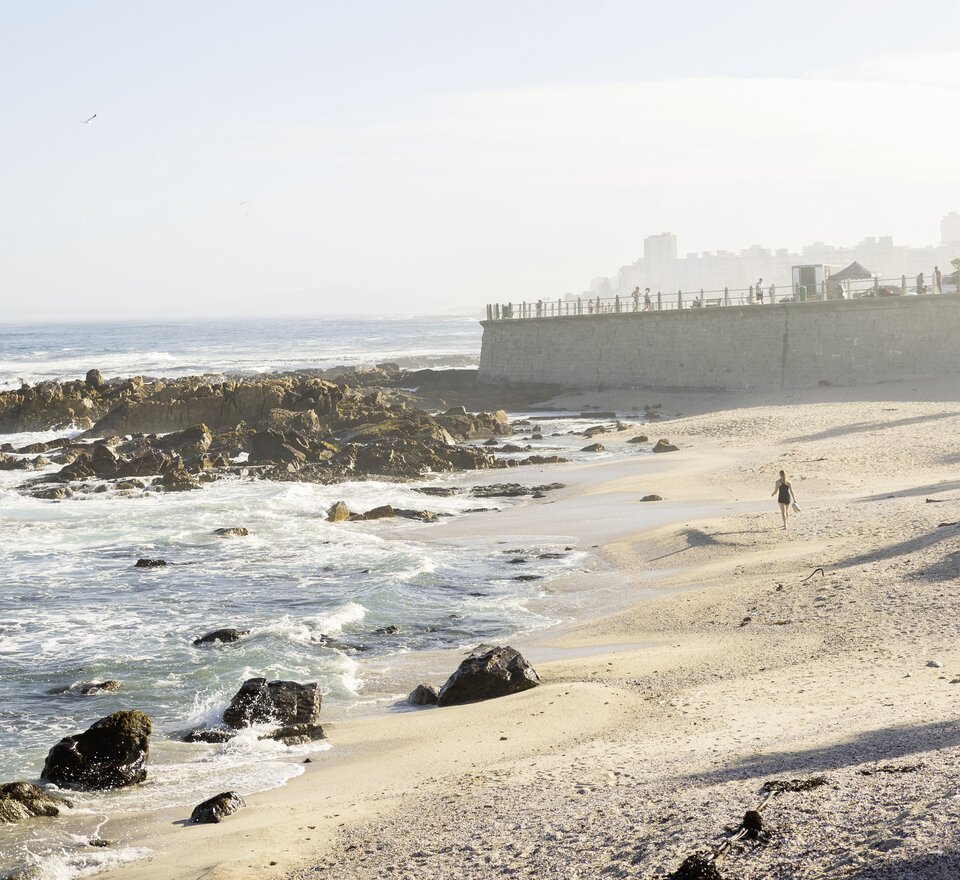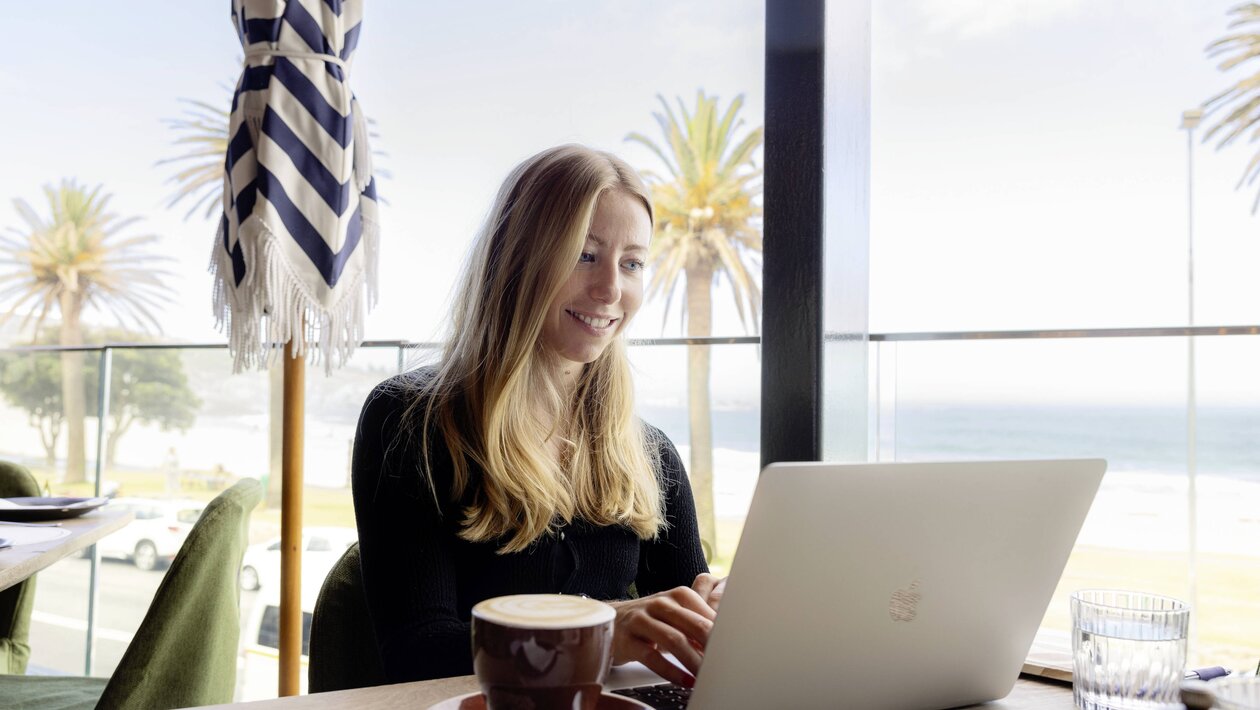Workation: working away from home in a holiday destination. What kind of potential might be waiting to be tapped in a place that makes work and leisure equally inspiring?
We take a look behind a New Work model that is becoming far more than just a trend. Cape Town, a pulsing metropolis and a bucket list city for many tourists, embodies the New Work mentality in its sunniest form. But what happens when you blur the boundaries between the desk and the beach?
Katharina Ilgner, Head of Marketing at the successful Berlin-based startup MYNE, which offers holiday properties on a managed co-ownership basis, tells us about her workation experiences in Cape Town.
Workationing is a concept you’ve lived in practice yourself. What inspired you to take your first workation in Cape Town, and what was it that drew you there?
The grim weather in Berlin and Salzburg, especially in the winter, made me want to try something new. In Cape Town, I start the day with some exercise by the sea – biking, running or walking. These long, sunny days give me so much more energy. The community here is another reason I keep coming back. Many friends and acquaintances also work remotely nearby, and the wealth of coworking spaces make it easy to be productive.
What makes Cape Town so unique as a workation destination?
The city has it all: delicious food and opportunities to get out into nature, and the most wonderful people. There’s also only a small time difference, which is ideal for my working rhythm. I start earlier in the day and can get my head down working before my team comes online in Germany.
There’s so much to do in Cape Town. How does your perception of work change if you’re living in a place that blurs the boundaries between your job and leisure time?
I set clear boundaries on the days I take as leave, but I’m available in an emergency. On workdays I use the energy from my morning exercise and the sun for focused working. Our accommodation has plenty of room for it, and I also take advantage of the coworking spaces. This physical structure helps me to stay concentrated. Having a clear working process also helps, as do my routines like regular video calls with the rest of the team.
What do people need to consider when taking a workation?
Good preparation is crucial. Fast internet and a second screen are the basics. And you need discipline. I’ve got that from my experience working remotely. I’m in Salzburg the majority of the time, then spend a couple of days a month at the Berlin office. Workationing has become a real New Work model.
Do you see an important benefit in it with respect to attracting young talent to companies?
Definitely! Remote and flexible working models are important for drawing in talent from around the world. Onboarding and regular meetings in the office are still crucial to team cohesion. Our MYNE group in Berlin is a great example of that. Structures like this encourage long-term loyalty and motivation. And it makes work fun. For us, it’s also important to create working environments that offer high-speed internet and comfort.
Last question: How would you sum up your experiences in a single sentence?
With discipline, clear processes and the energy I draw from the environment, remote working is not only more productive for me, but also more fulfilling – an experience that strengthens me and gives me new inspiration for my work. We sell holiday homes that give people opportunities to work remotely, so I live that dream myself and get new ideas at the same time.


